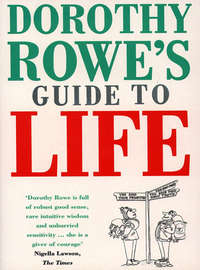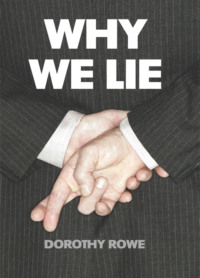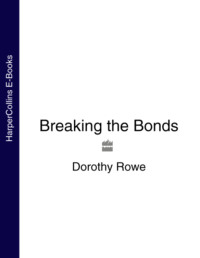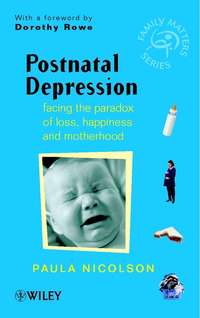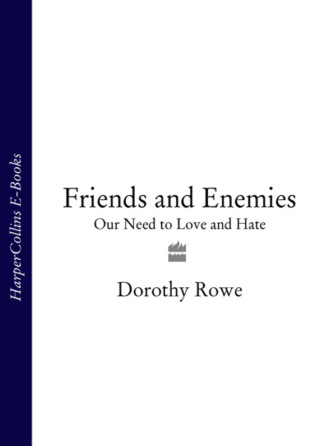
Полная версия
Friends and Enemies: Our Need to Love and Hate
• ‘To be a true friend you have to expose yourself, and this means you always risk being rejected.’
The pain of losing a friend was often mentioned as one of the dangers of friendship, but for Andrew Sullivan the death of a friend meant something more. He wrote, ‘It is only, perhaps, when you absorb the notion that someone is truly your equal, truly interchangeable with you, that the death of another makes mortality real. It is as if only in the death of a friend that a true reckoning with mortality is ever fully made, before it is too late.’6
Andrew Sullivan was writing about the death of a friend from Aids and describing how ‘homosexuals, by default as much as anything else, have managed to sustain a society of friendship that is, for the most part, unequalled by any other part of society.’7
This is a major claim to make, though he did acknowledge that heterosexual women could sustain friendships if their familial responsibilities have not overwhelmed them. Heterosexual men have suffered ‘great spiritual and emotional impoverishment’ because ‘the fear of male intimacy, which is intrinsically connected to the fear of homosexuality, has too often denied straight men the bonds they need to sustain themselves through life’s difficulties. When they socialize they often demand the chaperone of sports or work to avoid the appearance of being gay.’8
Tim Lott’s novel White City Blue concerns four men who call themselves close friends but whose friendships fail through lack of intimacy. Fear of homosexuality is certainly present in their relationships, but so is intense competition. In an article accompanying the publication of his novel Tim Lott commented on how women, unlike men, will talk to one another at length on the phone and even make conversation in a public washroom:
This seems to me a fundamentally different approach to male friendship. For men, friendship is far more a performance art. You go out, and you try to entertain each other. You grandstand, you try and get attention, you aim for the loudest laugh. This need for competition – which is another way of saying this need for domination – is an increasingly thin shell, and I believe it is slowly cracking up. Men are showing all the signs of admitting to be humans rather than just men, and, in this case, this means admitting to being more like women.9
I have not observed homosexual men being any less competitive than heterosexual men. Most hold the distinctly masculine view that competition is what life is about. I am not sure the homosexuality itself creates a special talent for friendship. Having sex with another person does not constitute a friendship, and, while some homosexual men form loving relationships with a long-term partner, many homosexual men spend an enormous amount of time and energy in promiscuous sex. I do not think that this is because homosexual men have a particular propensity for sex. If women were as interested in sex as men are, heterosexual men would be able to be as promiscuous as homosexual men.
Having sex is an excellent way of avoiding intimacy. You do not have to talk. Or you can talk but it is sex talk, which nowadays goes on in bed, out of bed, in entertainment and in selling things. The journalist Charlotte Raven, a very sharp-eyed observer, wrote,
This is what the sexual sell does. Far from revealing reality, it ends up concealing the truth. This may strike us as strange. We are used to reading sexual candour as evidence of openness. We tend to believe, as a culture, that the more we talk about sex, the more we are revealing of ourselves.
This may once have been true, but in the current over-stimulated climate sex talk is, perversely, becoming an excuse for not revealing anything important. All the usual rules have been inverted. Sex talk is small talk, a kind of background gibberish that covers up our inability to have real conversations. Therefore, the more we reveal about orgasms and erectile dysfunctions, the less we really know about ourselves.10
I agree with Charlotte, though I have to say that I have never known a time when talking about sex revealed the truth. When I discovered sex in the late forties women said nothing publicly about sex and many did not talk about it privately. My mother never mentioned menstruation or conception or childbirth to me, though she did, by implication, give me to understand that marriage entailed something unpleasant for a woman. In my teens I had to keep secret from her the fact that my sister, who was training to be a teacher, had given me a pamphlet to read on menstruation. I was in my thirties before I said the word ‘fuck’ publicly, and then only in the context of the punchline of a then very daring joke. I had had to learn the word, though not the joke, from my husband in bed.
In the sixties and seventies we thought we were being open and truthful about sex. But actually the same secrecy, misunderstanding and refusal to listen were still there, though the context might have changed. Men still operated on the old principle of propositioning every woman because, as my husband once explained to me, even though you got a lot of knock-backs, you get some acceptances, only now men expected every woman to be on the pill and so to have no reason to refuse their offer. Women were prepared to forgo the security of a marriage ring but they still wanted a relationship along with the sex.
Nothing of importance had changed because sex still posed the danger that it had always posed. Sex renders us vulnerable in the way we fear the most. We have to protect our sense of being a person for in failing to do so we risk being annihilated as a person. In orgasm our sense of self can dissipate in splendour, but we can also be wiped out as a person by the power of our partner, or, in the case of men, by failing to perform. So we lie about sex to one another and, sometimes, foolishly, we lie to ourselves.
During the seventies the Women’s Movement enabled many women to reveal that their sexual interest was in other women. After so many centuries in the shadows it was only human for them to claim that they were special. Having been less than nothing they needed to be more than most, as all disadvantaged groups do when they claim their birthright. So the myth was born that lesbians were able to combine the sensitivity, caring and empathy which all women possess with the passion of sex, and lesbian relationships would therefore not be torn apart by the jealousies, angers, hatreds and betrayals that turn heterosexual relationships into nightmares.
This myth completely ignored the fact that some women have all the sensitivity, caring and empathy of a pile of old bricks, and that sex and love, whatever the gender of the couple, are always accompanied by the passions of jealousy, anger, hatred and betrayal. A lot of women were hurt by this myth. I remember a young woman who came to talk to me about a book she was writing but who drifted off the subject to tell me about her partner’s faithlessness. What troubled her most was her guilt for failing to live up to the myth. She was jealous.
If you want an untroubled, utterly faithful relationship get a dog. Did you know that a survey by the British Veterinary Association revealed that 93 per cent of pet owners questioned bought their pet a Christmas present, and more than half the pets also received Christmas cards?11
Friends as friends and lovers as friends might be difficult but what about family? Can family be friends?
Alice was very clear that people as friends were different from family as friends. When I asked her if Miles was a friend she immediately answered yes, but when I pointed out to her that she hadn’t included him in her list of friends she said, ‘Well, he’s my brother.’
‘And what’s the difference between being a friend friend and being a brother friend?’
‘Well, he’s living with you. Friends don’t live with you, and brothers do. Eli’s my friend too.’ Eli was then only a few weeks old but he was fascinated with Alice and no doubt regarded her as a friend.
I asked, ‘Is Mummy your friend?’
‘Sort of. In the middle, I think.’
‘In the middle of what?’
‘In the middle means a bit of my friend – half. Half of my friend.’
Her mother Jo looked stricken.
I asked, ‘Is Daddy your friend?’
‘Yes. Daddy’s my friend.’
We went on to talk about enemies and then Jo, who was cooking, asked Alice why she did not think Mummy was a friend. Alice went over to Jo and, smiling broadly, started thumping her. She said, ‘Mummy, sometimes you shout at me and say I’m horrible.’
I said, ‘You’re banging into Mummy now. Does that mean you’re not her friend? If you hit Mummy, are you being a friend to her?’
Alice went on smiling and thumping Jo. She said confidently, ‘She likes it.’
That’s the kind of logic which families use.
When I asked Miles if Alice was his friend he said, ‘Some of the time she is but some of the time she isn’t.’ However, when he went on to consider the matter he decided that Alice was his friend even though she did not always do what he wanted her to do.
I asked Miles if Mummy was a friend. He said most emphatically, ‘Yes,’ but went on, ‘Most of the time, except when she gets cross.’
‘Is Daddy a friend?’
Miles’s ‘Yes’ was more hesitant so I said, ‘You seemed like you weren’t too sure about that.’
‘Well, I was going to say that my dad’s a bit harsh on my mum because he makes her seem to be the baddie. He’s always threatening us with things like ‘Quick, get into the bath before your mum comes up.’
‘And what do you think of that?’
‘I don’t think it’s nice. I wouldn’t like it if I was made the baddie all the time.’
‘Do you think your mum and dad are friends with one another?’
‘Yes, or they wouldn’t have married and I wouldn’t probably be alive.’
Miles and Alice illustrate the perils parents face if they take their children’s point of view seriously and allow them to express their opinions. Such children do not hesitate to criticize their parents. But Miles and Alice also reveal the security which they take for granted like the air they breathe. They can criticize their parents, and everyone can get cross and shout at one another, but it is never more than a storm in a teacup, and the teacup is rock solid.
Not all families are like that. I asked my workshop participants, ‘Can family be friends?’ Here are some of their replies:
• ‘No. What prevents them being friends is trust. I cannot trust them with my emotions. My parents never respected my feelings and I could no more trust them now than I could as a child. We do not relate our feelings to each other.’
• ‘We have totally different value systems.’
• ‘I love my son but he is not my friend. The relationship is one-sided. I love my daughter and she is a friend. We have a supporting relationship.’
• ‘I can’t say that anyone in my family was a friend. My mother was particularly forbidding, full of repressed anger and without humour.’
• ‘I would like to think this is so but know that it is not because we come from the same situations with similar knowledge but different feelings.’
• ‘Many of my family will only accept me very conditionally and I am not willing to sacrifice myself in order to be accepted by them.’
• ‘Blood’s thicker than water because you share the same history and are used to familiar relationships. But it is harder to set yourself free.’
• ‘I have a sister I haven’t spoken to for several years because she hurt me many times. I feel it is safer for me not to have a friendship with her.’
• ‘I love my brothers but wouldn’t call them friends. There’s no one in my family I share myself with deeply.’
• ‘Sometimes it’s difficult for a relative to be a friend because they can’t stand back from the situation. They get too involved and emotional.’
• ‘I do not see all members of my family as friends but maybe members of the same tribe. Some are friends: all are friendly.’
• ‘Blood’s bloodier than water.’
Andrew Sullivan considered the question of friends and family:
Families and marriages fail too often because they are trying to answer too many human needs. A spouse is required to be a lover, a friend, a mother, a father, a soulmate, a co-worker, and so on. Few people can be all these things for one person. And when the demands are set too high, disappointment can only follow. If husbands and wives have deeper and stronger friendships outside the marital unit, the marriage has more space to breathe and fewer burdens to bear. Likewise, a lack of true family can, I think, impinge on friendship. If we have many friends and no real family, we tend to demand things of friends which are equally inappropriate. The two relationships, then, family and friendship, are surely rivals, but they are also complements to one another. There is no reason why most human lives should not have a deep experience of both.12
That is a wonderful aspiration, but many of us fail to achieve it. I used to think that some people have a talent for friendship but now I am not so sure. I have learned that when people speak of the wonders of universal love, or of spirituality, or of caring for others, or of friendship I should look at what these people actually do. I have worked as a visiting lecturer for far too many charity, psychotherapy and counselling groups where all the talk was of how much they care about other people but where that ‘other people’ did not include me. In their eyes I had no needs like being fed, being protected from importunate members of the audience, assisted with transport or simply given a glass of water. The world is full of people who believe that to say you do something is the same as doing it. St Paul did say that the thought is the same as the deed, which probably explains why I have found so many Christians prone to such oversights.
Even when someone does show all the behaviours we might associate with having a talent for friendship I have found it necessary to ask the person whether that is so.
My friend Una seemed to me to have a talent for friendship. She had retired from a long and distinguished academic career in psychology. I doubt that there would be many of her erstwhile students who did not consider her to be a friend, while in the often bitchy world of professional psychology in Australia she had no enemies and masses of friends.
Una remembered and kept up with the events in her friends’ lives. She always kept a photographic record of us, pictures which she kept in albums on the coffee table beside the couch where she read her beloved newspapers. Her passion was current affairs. She told me, ‘A lot of my friendship is carried on in my head. I think about you a lot, and I think about Patricia sitting in her London house. I’ve got pictures of all of you here. There’s Polly in Scotland. I think of you all living your lives as I know them now.’
What Una liked about friendship was the conversation, exploring a topic together. She was conversing most of the time, directly with friends and neighbours, and her cat, or indirectly by telephone and letters. Yet, when I said to her that she had a talent for friendship she denied it.
She said, ‘I have a talent for friendship like when the plumber came today. I can talk like that very easily. I can get on with working men in pubs in England as very few people can. And there are certain people in shops I can talk to, and my neighbours, but I have been living here for twenty years so that’s not surprising. We have over-the-fence chats to each other but we have got absolutely nothing in common except neighbourliness. When I go into groups with my peers I’m one of the less comfortable ones. I think people like me and they look to me for certain things. I do have close friendships but they took a long time to build up and they’re often quite ambivalent. At a distance I can be friendly and helpful, but I find it hard to cope with intimacy. That’s why I live on my own, I suppose. I find it hard to tell people, “I like you. Can I see you again?” Maintaining a friendship is a problem with me. I am grieving over several lost friendships where we have just drifted apart. And that’s hard. My friend Belinda, we shared flats together and so on, and even after she married and had a kid we saw each other quite frequently. Now she no longer rings me. I ring her and keep in contact. But she has got grandchildren and her husband has retired, and it’s very rare that she gives me a thought, I think, and I find that hard.’
I asked my workshop group if there was a talent for friendship and, if so, whether it was innate or learned. They answered:
• ‘I have learned to respect others through therapy. I learned from appropriate modelling of others who have been through similar processes.’
• ‘I haven’t a talent for friendship. I think friendship is learnt; by giving friendship to others one receives friendship back and people benefit and grow.’
• ‘No talent. I was brought up by a puritanical grandmother who allowed no one into the house. No child was quite good enough for me to play with.’
• ‘In the main, we learn how to make friends by observing others, initially our parents and siblings and, as we get older, our peers and work colleagues. To observe the making of a friendship by others teaches us to behave in a fashion to create our own.’
• ‘I grew up with no social skills apart from being polite. My best friend grew up with good social skills and she became my role model.’
• ‘I think I have a talent for friendship because I am open and honest and I have a great faith in people. Unfortunately this sometimes leads to my downfall because other people then hurt me.’
• ‘I value friendships highly. Because I think friendships are important I think I make a good friend.’
• ‘I think that I probably choose not to develop any talent I may have for friendship as I do not feel the need for many friends, although I do like other people to accept me in a friendly way as a friendly person.’
Underlying these answers and indeed the words of everyone quoted here is a division which runs like a great fault-line across the world of friendship. It is the line which divides us all into one of two groups, according to how we experience our sense of existence. These groups I have called extraverts and introverts. In my earlier books and especially in The Successful Self I have looked at how this division affects our relationships. What I have said has arisen out of extensive research. I now know that whenever I talk or write about this matter some people, usually those I call introverts, will say, ‘Yes, I recognize myself in what you say,’ and some people, usually those I call extraverts, will not recognize what I say and instead be puzzled or insist that they are a bit of both, no matter how much I explain that it is not a matter of what you do but why you do it. However, it is not surprising that such a difference arises because introverts turn inwards to their internal reality of thoughts and feelings, and thus are likely to be aware of why they do what they do, while extraverts turn outwards to their external reality, where they are more interested in doing than in examining the reasons why.
Other people are of enormous importance to extraverts because extraverts experience their sense of existence in relationship to other people. Lesley, an extravert, explained this. ‘If you are an extravert who feels in danger of disappearing, friends are vital landmarks on your map who need to be kept in place at all costs. Without them there is the feeling that you don’t exist because you can only get some sense of yourself if it is reflected back at you. It is as though the reflection is real and exists but you do not exist without the mirror of people relating to you. If you feel like that any expenditure of effort on friends is worthwhile.’
The writer Fay Weldon told me, ‘I had the art of placating and always had fans, even as quite a small child. I would always have a little group of supporters who would fight my corner for me with teachers. I just like friends. I just like talking to people, I enjoy conversation. I just went to school because I liked my friends.’ It has always amazed me that Fay ever gets any writing done because her home is always full of people, but she explained, ‘I’ve rather cunningly always surrounded myself with children, which is another way of creating your own world downwards because there isn’t anything particularly solid behind you. So now there are children, and grandchildren, and Nick has three boys – one, fifteen years old, lives with us and the other two visit. I just think I was born sociable and gregarious.’
Extraverts often envy introverts for having – or appearing to have – a deep, still centre, but Lesley clearly does not envy introverts. She wrote,
Then there are those strange people called introverts. I have the feeling that many of these characters are so bound up with what they are doing or thinking and are so happily and securely independent that they don’t realize that extravert partners may feel shut out and neglected. I misunderstood my introvert ex-husband, because he was much more bound up in his medical practice than in what I and the children were doing or feeling. I reached the perfectly logical conclusion that he didn’t care about us. In fact he did and does, but he doesn’t want his family to take up much of his valuable time.
What Lesley was describing here was how introverts experience their sense of existence through a sense of achievement, organization and control. They often lack the social skills which extraverts acquire so easily.
Some introverts do learn the art of being sociable. Irene described her progress to me: ‘Control is important to me. Wild emotion and a lot of impinging of emotion I can’t deal with. Sex drives I could understand, but I could never understand why people were dependent on one another. Even as a child I couldn’t. There was all that marvellous, exciting world out there, and so many things to see and do. I resent people who try and restrict me from being myself, from doing what I want to do. It took me a long time to be part of a group. Right up until I was fifty I hated groups, but gradually I’ve learned to cope. I’ve done it, I feel, successfully, and it’s been a great help in my life. I remember talking to you years ago – I’d just turned thirty-six, I think, and I said to you, I just suddenly felt that everybody else felt the same sort of inadequacies, fear and anxiety as I did. I didn’t feel isolated any more. Because that’s what I felt before, that I felt this and everybody else was going along having a great time. I think that gradually in the eighties – it was doing those various personal development courses and group activities – I realized more fully that everybody’s much the same. It was good to learn to work with a group and accept a role in that group, and usually, if I’m not the leader, I’m close to the leader. I would hate to be without friends. The fact that they exist and are part of the circle that I can relate to is very comforting to me. I haven’t got perfect friends, but I’m not a perfect friend either. I can be happily occupied by myself, fiddling around with paints and looking at things, but friendships are part of the pattern of my life.’
Extraverts, as Lesley described, need other people to maintain their sense of existence, and introverts, as Irene mentioned, need other people to reduce their sense of isolation, but for extraverts relationships with other people are their top priority while for introverts the top priority is a sense of achievement. Of course, everyone wants both – good relationships and a sense of achievement – but often life forces us to choose between them. If we are wise we know what our top priority is and we make sure we fulfil it in some way. No matter how vast Fay’s work commitments are she always surrounds herself with family and friends. When Irene was diagnosed with lung cancer she chose not to go immediately into treatment. Instead she flew to Paris from Sydney to spend two weeks touring the art galleries. What mattered most to her was exploring ‘that marvellous, exciting world out there’.
Opposites, so they say, attract, and where love and sex are concerned a couple is always a pairing of an introvert and an extravert. We see in the other something we do not have. The central character in Tim Lott’s White City Blue is Frankie, an estate agent and an extravert. He says of himself,


